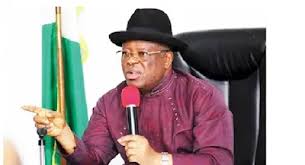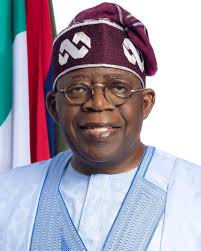Come Let’s Debate, I’m Your Senior in Practice – Umahi Fires Back at Makinde
The Minister of Works, David Umahi, has replied the governor of Oyo State, Seyi Makinde, following his recent comments over the cost per kilometre of the Lagos-Calabar Coastal Highway.
Makinde had supported Arise Tv anchor Rufai in an interview, had questioned Umahi over the coastal highway technical details and cost evaluation.
Speaking during an inspection tour of the Keffi Bridge and the Nasarawa–Toto Road projects, alongside the state governor, Abdullahi Sule, on Saturday, Umahi said the cost of the highway had been carefully computed in line with global engineering standards and should not be reduced to “political soundbites.”
Makinde, who spoke at an event in a viral video on Friday, said there was no need for the Minister of Works, David Umahi, to be “dancing around the cost” of the project.
He said, “These are elementary questions. And it makes no sense (sic). A process is ongoing, payment has been made, and you are saying, ‘How has this money been utilised?. The money is meant for the project, and it will be paid according to the work done.
Responding to the inspection tour, the former Ebonyi governor described Makinde as “a brother and friend” but said it was improper for him to publicly accuse him of “dancing around” figures.
“I heard that my brother and friend, Governor Makinde, said something about the cost per kilometre. I don’t want to join issues with him. I think he is an engineer, while I am an electrical engineer, they call us ‘elect-elect’. But this road construction matter, ‘elect-elect no reach there’.”
“I am his senior both in governance and in engineering practice. So, anything he doesn’t understand, he should call me and ask. I have great respect for him as my friend and brother, but he should withdraw the statement that I’m dancing around. I never danced around. If he insists, he should come for a debate, which is very important.”
Defending the project further, Umahi explained that there was no ambiguity in determining the cost per kilometre, stressing that it must be understood in both estimated and average terms.
“There is no ambiguity in cost per kilometre. I am teaching them that cost per kilometre can be divided into estimated cost, which has elements of variance, and average cost, which is definitive. The average cost of a definitive project and the estimated cost are probable elements.”
“When the project is completed, and you remove what you didn’t use, such as contingencies and VOP, then you have your actual cost.
“When somebody who is dangling without knowledge goes to ask AI what the difference is between cost per kilometre and average cost, I’m happy that AI told him exactly what I said,” the minister quipped.
He also cited the National Universities Commission’s clarification on who qualifies as a professor, noting that practical experience in the field also counts as expertise.
“I’m happy that the NUC programme on who is a professor also made me right. You can become a professor by the reason of your practice. And I think God has made me one when it comes to practical, field engineering programmes, that’s what it is; you can’t take it back,” Umahi said.






